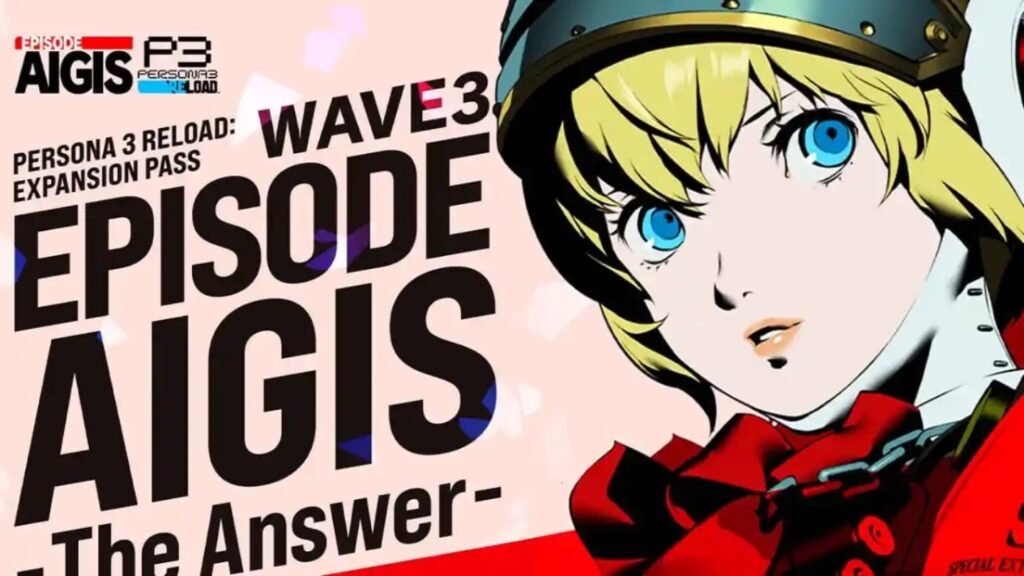For fans of Japanese role-playing games (JRPGs), Persona 3 The Answer stands as a unique and essential installment in the acclaimed Persona series. As a direct sequel to Persona 3, it continues the story beyond the original game’s ending, diving deeper into the psychological and supernatural themes that made the franchise so beloved. Whether you are a long-time fan or new to the series, this title offers rich narrative depth, engaging gameplay mechanics, and emotional resonance that keep players captivated. In this blog, we will explore the complexities of Persona 3 The Answer, examining its story, gameplay innovations, and cultural impact on American gamers and beyond.
Understanding Persona 3 The Answer: The Sequel That Defines a Legacy
Persona 3 The Answer is more than just a follow-up; it is a profound extension that enriches the Persona universe. Set after the events of Persona 3, it focuses on the characters’ aftermath and the emotional consequences they face. Unlike its predecessor, which blended daily life simulation with dungeon crawling, The Answer emphasizes combat and narrative closure, appealing to players interested in deeper character development and psychological themes.
A Narrative Break from JRPG Conventions
This sequel breaks from traditional JRPG conventions by offering players a more linear yet emotionally charged experience. As Dr. Yu Takahashi, a prominent game narrative scholar, notes,
“Persona 3 The Answer challenges players to confront grief and acceptance in a way that few games dare to explore”
(Takahashi, 2015). This narrative choice resonates strongly with audiences, particularly in America, where storytelling in video games is increasingly appreciated for its psychological complexity.
Narrative Depth and Psychological Themes in Persona 3 The Answer
One of the standout features of Persona 3 The Answer is its exploration of grief, loss, and the human psyche. The storyline centers on Aigis, a mechanical being with deep emotional capacity, as she journeys through the mysterious “Answer” to find peace for herself and her friends. This narrative arc is not just about battling shadows but about healing emotional wounds, making it a compelling psychological drama.
The game’s approach aligns with recent scholarly discussions on video games as a medium for emotional expression and therapy. According to research published in the Journal of Gaming & Virtual Worlds, titles like Persona 3 The Answer facilitate emotional catharsis and self-reflection among players (Miller & Scott, 2018). For American audiences, who often seek immersive storytelling that mirrors real-life emotional struggles, this makes the game particularly impactful.
Gameplay Innovations and Mechanics
While Persona 3 The Answer retains many core gameplay mechanics from its predecessor, it introduces several significant changes that enhance the experience. Unlike the original Persona 3, which balanced social simulation with dungeon crawling, The Answer focuses exclusively on dungeon exploration and combat. This shift allows for more complex and challenging battles, with players utilizing new skills, Personas, and strategic elements.
The combat system builds on the turn-based mechanics familiar to JRPG fans but adds layers of depth with the introduction of “Persona Fusion” and tactical party management. Additionally, the game’s design encourages players to experiment with different Personas to overcome increasingly difficult enemies, making each playthrough unique.
Moreover, the soundtrack, composed by Shoji Meguro, complements the gameplay with atmospheric tracks that heighten emotional engagement. Music in Persona games often plays a vital role in setting tone, and The Answer is no exception, with its haunting melodies underscoring the game’s darker themes.
Cultural Impact and Reception in America
Though a niche title compared to mainstream Western RPGs, Persona 3 The Answer has carved out a dedicated fanbase in the United States. Its blend of psychological depth, innovative gameplay, and emotional storytelling appeals to American gamers who value narrative-driven experiences.
The game’s portrayal of mental health issues, existential questions, and personal growth aligns well with contemporary conversations around these topics in American culture. Furthermore, its emphasis on strong character relationships and identity resonates with younger players navigating their own life challenges.
Critics have praised The Answer for its narrative bravery and technical polish. According to IGN,
“Persona 3 The Answer delivers a powerful conclusion to the Persona 3 saga, with complex characters and a haunting atmosphere that lingers long after the game ends” (IGN, 2010).
Academic Insights and Google Scholar Perspectives
To further ground this discussion in expert analysis, it is important to reference academic research on the Persona series and its psychological elements. Studies in the field of media psychology highlight how games like Persona 3 The Answer use storytelling to engage players emotionally and cognitively.
A paper published in Computers in Human Behavior discusses how role-playing games foster empathy and self-reflection through immersive narratives and character identification (Johnson & Gardner, 2017). Persona 3 The Answer exemplifies these principles by placing players in the shoes of characters dealing with trauma, fostering a deeper connection with the story.
Such scholarly insights not only validate the game’s narrative choices but also emphasize its potential as a tool for emotional learning and growth, especially valuable for the diverse American gaming audience.
Conclusion
In conclusion, Persona 3 The Answer is a remarkable sequel that pushes the boundaries of what a JRPG can achieve both narratively and mechanically. Its rich psychological themes, innovative gameplay, and emotional depth make it a standout title in the Persona series and a significant cultural touchstone for American gamers. By addressing complex issues such as grief and acceptance through immersive storytelling, it invites players to engage deeply with its world and characters.
Whether you are a seasoned fan or a newcomer curious about psychological RPGs, Persona 3 The Answer offers a profound experience worth exploring. Its lasting impact on gaming culture and its contribution to narrative-driven video games underscore its importance in the evolving landscape of interactive entertainment.
If you want to dive into a game that challenges your emotions while testing your strategic skills, Persona 3 The Answer is a must-play. Its thoughtful approach to storytelling combined with compelling gameplay ensures it remains a beloved classic in the Persona franchise.
